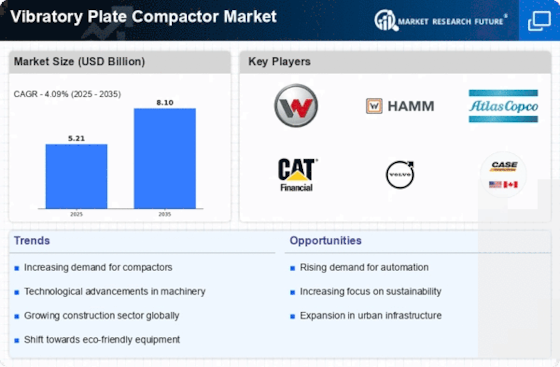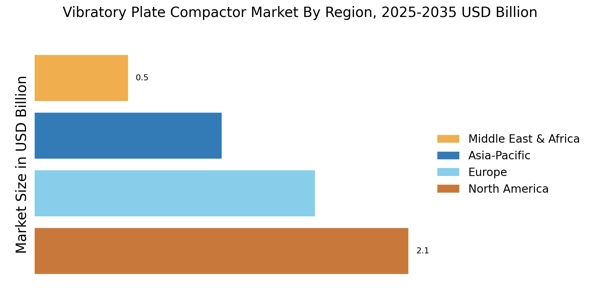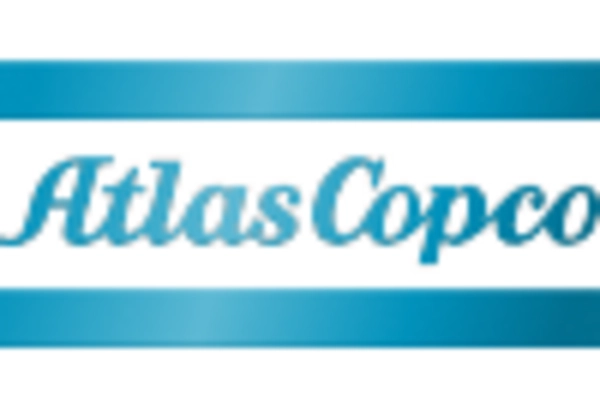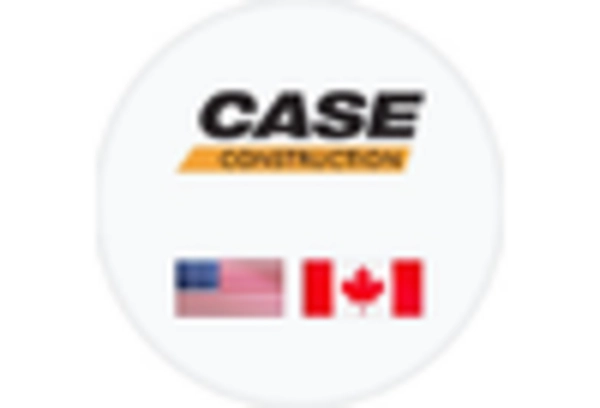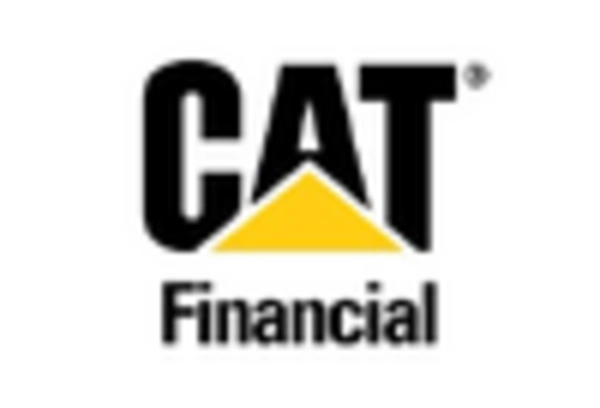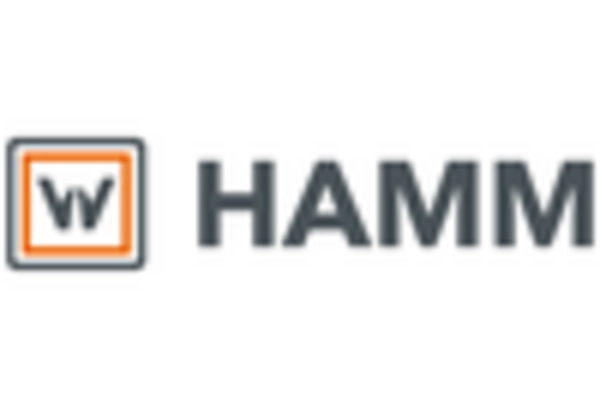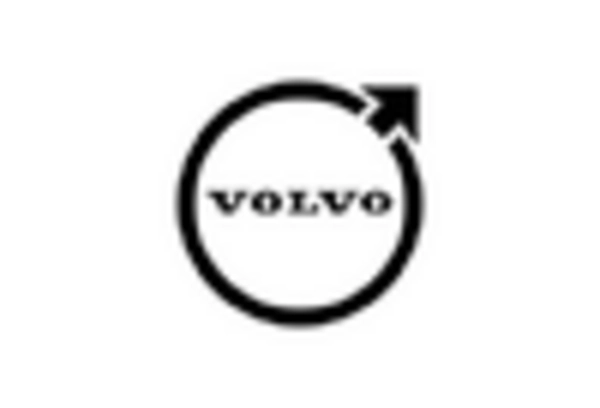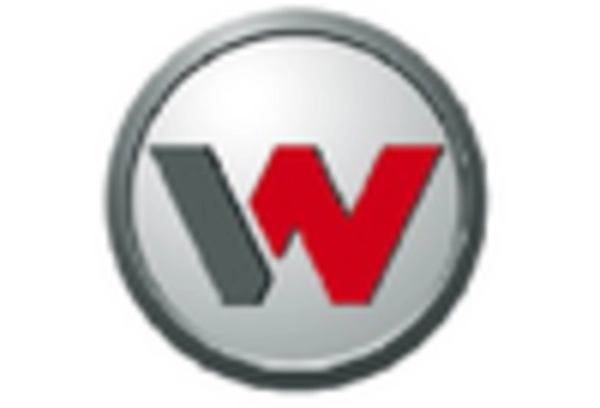Rental Market Expansion
The expansion of the equipment rental market is emerging as a significant driver for the Vibratory Plate Compactor Market. Many construction firms are opting to rent rather than purchase equipment, particularly for short-term projects. This trend is fueled by the desire to minimize capital expenditure and maintain flexibility in operations. As rental companies expand their fleets to include a variety of compaction equipment, the availability of vibratory plate compactors is increasing. This accessibility is likely to attract a diverse range of customers, from small contractors to large construction firms, thereby bolstering the Vibratory Plate Compactor Market. The rental market's growth is expected to continue, further enhancing the demand for these essential machines.
Technological Innovations
Technological advancements in compaction equipment are significantly influencing the Vibratory Plate Compactor Market. Innovations such as improved vibration technology, enhanced fuel efficiency, and the integration of smart features are making vibratory plate compactors more effective and user-friendly. The introduction of electric and hybrid models is also gaining traction, aligning with the growing demand for environmentally friendly machinery. As manufacturers continue to invest in research and development, the market is likely to witness a shift towards more sophisticated and efficient compaction solutions. This evolution not only enhances performance but also reduces operational costs, thereby attracting a broader customer base to the Vibratory Plate Compactor Market.
Infrastructure Development
The ongoing expansion of infrastructure projects worldwide appears to be a primary driver for the Vibratory Plate Compactor Market. Governments and private sectors are investing heavily in road construction, urban development, and public works, which necessitate efficient compaction equipment. For instance, the demand for compactors is likely to rise as countries enhance their transportation networks and urban areas undergo redevelopment. This trend is supported by data indicating that infrastructure spending is projected to reach trillions of dollars in the coming years. Consequently, the Vibratory Plate Compactor Market is poised to benefit from this surge in construction activities, as these machines are essential for achieving optimal soil compaction and stability.
Increased Construction Activities
The resurgence of construction activities across various sectors is a notable driver for the Vibratory Plate Compactor Market. With a rise in residential, commercial, and industrial projects, the need for effective soil compaction has become paramount. Data suggests that construction spending is on an upward trajectory, with many regions experiencing a construction boom. This increase in activity necessitates the use of vibratory plate compactors to ensure proper ground preparation and stability. As contractors seek reliable and efficient equipment to meet project demands, the Vibratory Plate Compactor Market is likely to see sustained growth, driven by the need for high-quality compaction solutions.
Regulatory Compliance and Safety Standards
The enforcement of stringent regulatory compliance and safety standards in construction practices is driving the Vibratory Plate Compactor Market. As safety regulations become more rigorous, construction companies are compelled to invest in high-quality compaction equipment that meets these standards. Vibratory plate compactors are often favored for their ability to provide consistent and reliable compaction, which is crucial for ensuring site safety and compliance. Additionally, the emphasis on worker safety and equipment reliability is likely to lead to increased demand for advanced compaction solutions. Consequently, the Vibratory Plate Compactor Market is expected to benefit from this heightened focus on safety and regulatory adherence, as companies seek to mitigate risks associated with construction activities.


